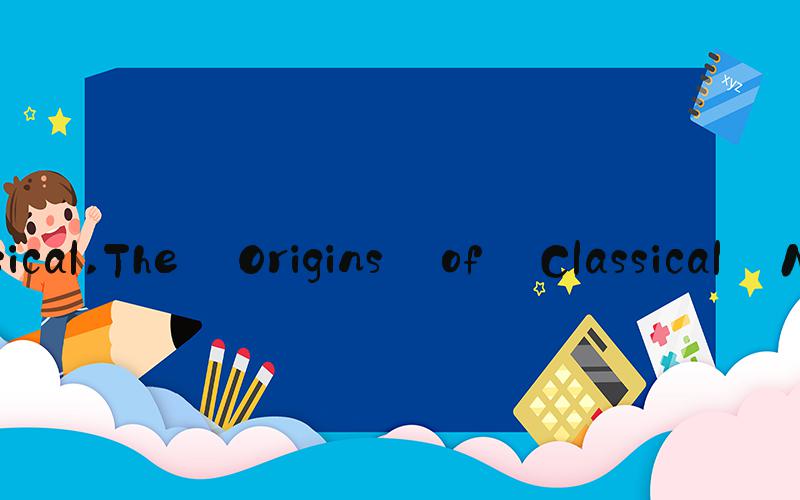
 Classical Music: A Timeless Artform
Classical Music: A Timeless ArtformClassical music is a genre of music that has been around for centuries. It is known for its timeless quality and the ability to evoke emotions in listeners. This type of music is characterized by complex instrumentation, harmony, and melody, and it is considered one of the most sophisticated forms of art. In this article, we will explore the history of classical music, its evolution, and its impact on modern music and society.
The Origins of Classical MusicThe roots of classical music can be traced back to the medieval period, where it was mostly influenced by vocal music. During the Renaissance period, instrumental music started to emerge, and composers began to experiment with new forms and techniques. The Baroque period saw the rise of musical geniuses like Johann Sebastian Bach and George Frideric Handel. This era was characterized by complex polyphony, ornamentation, and elaborate harmonies and melodies.
The Evolution of Classical MusicDuring the Classical period, which started in the mid-18th century, composers like Wolfgang Amadeus Mozart, Ludwig van Beethoven, and Franz Joseph Haydn revolutionized the genre by developing new forms like the symphony and the sonata. This era was also known for its clarity of melody, balance, and proportion. The Romantic period, which followed, saw a shift towards a more emotional and expressive style of music, characterized by passionate melodies and chromatic harmonies. Composers like Frederic Chopin and Richard Wagner were prominent during this period. The 20th century saw an explosion of new styles and techniques, including atonal music (music without a tonal center), minimalism, and electronic music.
The Impact of Classical Music on Modern Music and SocietyClassical music has had a profound impact on modern music and society. It has influenced various genres, including rock, pop, and jazz. Many modern musicians, such as Brian Eno and David Bowie, have cited classical music as a significant source of inspiration. Classical music has also played a role in social movements, with composers using their music as a tool for political and social activism. For example, Beethoven's "Ode to Joy" has been used as a symbol of freedom and unity. Classical music has also been shown to have numerous cognitive and emotional benefits, including improving memory and reducing stress levels.
The Future of Classical MusicDespite its longevity, classical music has faced challenges in attracting new audiences and keeping up with modern trends. However, innovative approaches like incorporating technology and collaborating with other genres have helped to keep classical music relevant and engaging. Additionally, efforts to democratize classical music by making it more accessible to diverse communities have gained momentum in recent years. The future of classical music looks bright, with new generations of composers and musicians continuing to push the boundaries of the genre while staying true to its rich and storied heritage.
ConclusionClassical music is an enduring artform that has survived the test of time. It has undergone many transformations but has remained an essential part of our cultural heritage. As we continue to evolve as a society, classical music will undoubtedly evolve with us. It will continue to inspire and express the deepest human emotions for generations to come.
